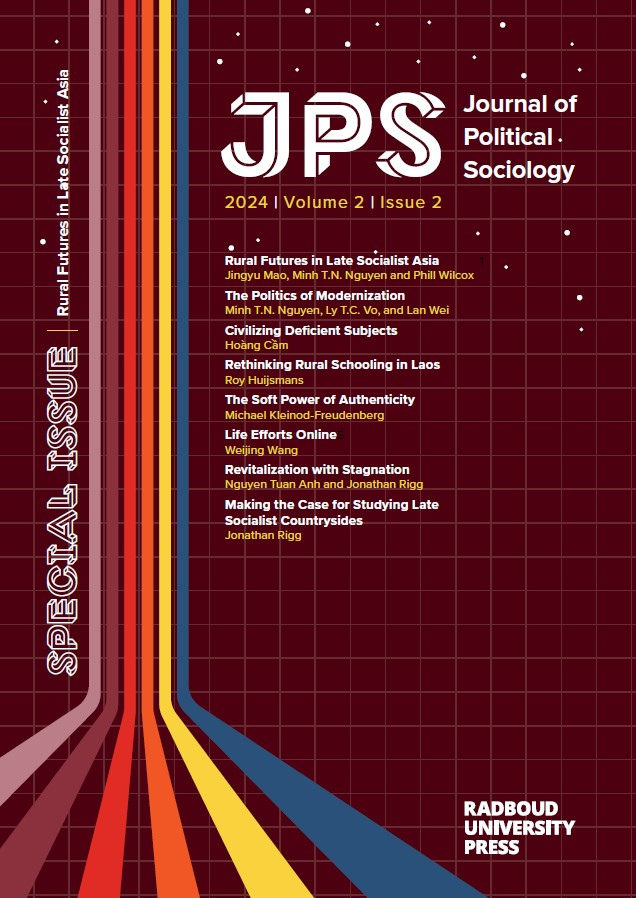The Politics of Modernization
Shifting Construction of the Peasant, Mobility Trajectories and Rural Revitalisation in Post-reform China and Vietnam
DOI:
https://doi.org/10.54195/jps.15615Keywords:
rural development, new countryside, modernisation, mobility, China, VietnamAbstract
Based on a comparative study of two villages with distinct translocal and transnational migrant economic networks, this article examines the ideological underpinnings of China and Vietnam’s rural development programs in relation to rural people’s actions and strategies. Central to these programs are enduring modernizing agendas that seek to reform rural people and transform rural places according to state-defined criteria moulded on class-based notions of civility and population categories that construct rural people as backward and in need of reform. Our ethnographic research finds that villagers undertake multidirectional mobility trajectories to generate social and economic values that defy such constructions. Yet, these are often incorporated by the said state agendas, which maintain a social order based on the rural-urban hierarchy that is crucial for legitimating the political power of their party states. We underscore a complex politics in which rural people contest the imposition of the categories with their actions and at the same time view the said modernising agendas as a social space for value creation.
Downloads



